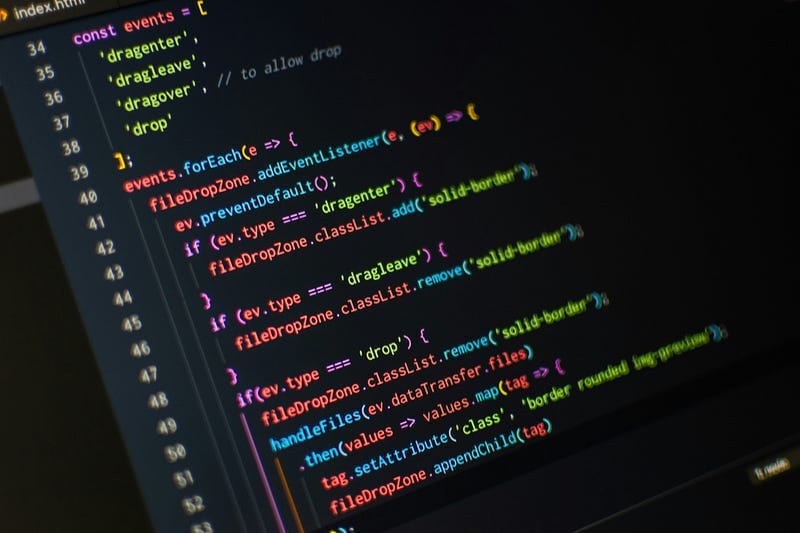Secrets of Senior Developers: Writing Clean, Maintainable Code
Becoming a senior developer isn’t just about writing code that works — it’s about writing code that is clean, maintainable, and easy to…

Becoming a senior developer isn’t just about writing code that works — it’s about writing code that is clean, maintainable, and easy to understand. While junior developers focus on getting things to work, senior developers think about scalability, readability, and long-term maintainability.
So, what’s their secret? Let’s dive into the best practices and principles that experienced developers follow to write high-quality code.
1. Follow the KISS Principle (Keep It Simple, Stupid!)
Senior developers avoid unnecessary complexity. If a feature can be implemented in 10 lines instead of 50, they go for the simpler approach.
❌ Bad Example (Unnecessarily Complex Code)
def calculate_discount(price, discount):
if discount == 0:
return price
else:
return price - (price * (discount / 100))✅ Clean & Simple Version
def calculate_discount(price, discount):
return price if discount == 0 else price * (1 - discount / 100)👉 Simpler code is easier to read, debug, and maintain.
2. Write Meaningful Variable and Function Names
A function named doStuff() tells you nothing about what it does. Senior developers use self-explanatory names.
❌ Bad Example
def p(a, b):
return a * b✅ Clean Version
def calculateArea(width, height):
return width * height🔹 Rule of Thumb: If you need comments to explain a variable, the name is probably not descriptive enough.
3. Apply the DRY Principle (Don’t Repeat Yourself)
Repetition leads to code duplication and harder maintenance. Instead of copy-pasting the same logic, extract reusable functions.
❌ Bad Example (Code Duplication)
def calculateCircleArea(radius):
return 3.14159 * radius * radius
def calculateSphereSurfaceArea(radius):
return 4 * 3.14159 * radius * radius✅ Clean Version (Reusable Function)
def getPi():
return 3.14159
def calculateCircleArea(radius):
return getPi() * radius * radius
def calculateSphereSurfaceArea(radius):
return 4 * getPi() * radius * radius🔹 Reusability reduces bugs and makes future changes easier.
4. Keep Functions Small and Focused
A function should do one thing and do it well. If it’s too long, break it into smaller functions.
❌ Bad Example (Too Many Responsibilities)
def process_user_data(user):
user['full_name'] = user['first_name'] + ' ' + user['last_name']
user['age'] = 2024 - user['birth_year']
print(f"User: {user['full_name']}, Age: {user['age']}")
save_to_database(user)✅ Clean Version (Separation of Concerns)
def get_full_name(user):
return user['first_name'] + ' ' + user['last_name']
def calculate_age(birth_year):
return 2024 - birth_year
def process_user_data(user):
user['full_name'] = get_full_name(user)
user['age'] = calculate_age(user['birth_year'])
save_to_database(user)🔹 Each function now has a single responsibility, making the code easier to test and modify.
5. Use Comments Wisely (Only When Necessary)
Senior developers write self-explanatory code, reducing the need for comments. However, comments are useful for complex logic.
❌ Bad Example (Unnecessary Commenting)
# Increment i by 1
i = i + 1;✅ Clean Version (Meaningful Comment for Clarity)
# Adjust index to account for zero-based arrays
i = i + 1;🔹 Write code that doesn’t need comments, but when you use them, make them valuable.
6. Use Error Handling to Prevent Failures
Senior developers anticipate potential errors and handle them gracefully.
❌ Bad Example (No Error Handling)
def getUserData(id):
return database.findUserById(id).data;✅ Clean Version (Error Handling Included)
def get_user_data(id):
try:
user = database.find_user_by_id(id)
return user.data if user else None
except Exception as error:
print("Error fetching user data:", error)
return None🔹 Good error handling prevents unexpected crashes.
7. Write Tests (Even If You Think You Don’t Need Them)
Senior developers write tests to catch bugs early. A simple unit test can save hours of debugging later.
Example: Python Unit Test
import unittest
def add(a, b):
return a + b
class TestMathFunctions(unittest.TestCase):
def test_add(self):
self.assertEqual(add(2, 3), 5)
if __name__ == '__main__':
unittest.main()🔹 Good test coverage = Fewer production bugs!
8. Keep Your Code Consistent
Whether you’re using camelCase, snake_case, tabs, or spaces, consistency is key. Use linters and formatters like:
✅ ESLint for JavaScript
✅ Black, Flake8 for Python
✅ Prettier for multiple languages
❌ Bad Example (Inconsistent Formatting)
function getUser(id) { return db.findUser(id) };✅ Clean Version (Consistent Formatting)
function getUser(id) {
return db.findUser(id);
}🔹 Consistent code is easier to read, debug, and maintain.
9. Write Modular Code (Think LEGO Bricks!)
Break large programs into smaller, reusable modules.
Example: Breaking a Monolithic File into Modules
🔹 auth.py (Handles Authentication)
def login(user):
# Login logic
def logout():
# Logout logic🔹 db.py (Handles Database Operations)
def fetch_user(id):
# Fetch user logic
def save_user(user):
# Save user logic🔹 main.py (Uses Modules)
from auth import login, logout
from db import fetch_user, save_user🔹 Modular code is reusable, testable, and easier to maintain.
10. Use Version Control Properly (Git Best Practices)
Senior developers commit often and write meaningful commit messages.
❌ Bad Commit Message
git commit -m "Fixed stuff"✅ Good Commit Message
git commit -m "Fix login bug by adding token validation"🔹 Good commit messages help track changes efficiently.
Final Thoughts
Writing clean, maintainable code is a skill that separates senior developers from the rest. Follow these principles, and you’ll:
✅ Write code that’s easy to read
✅ Reduce bugs and technical debt
✅ Make collaboration smoother
What’s your favorite clean code tip? Drop it in the comments! 🚀




